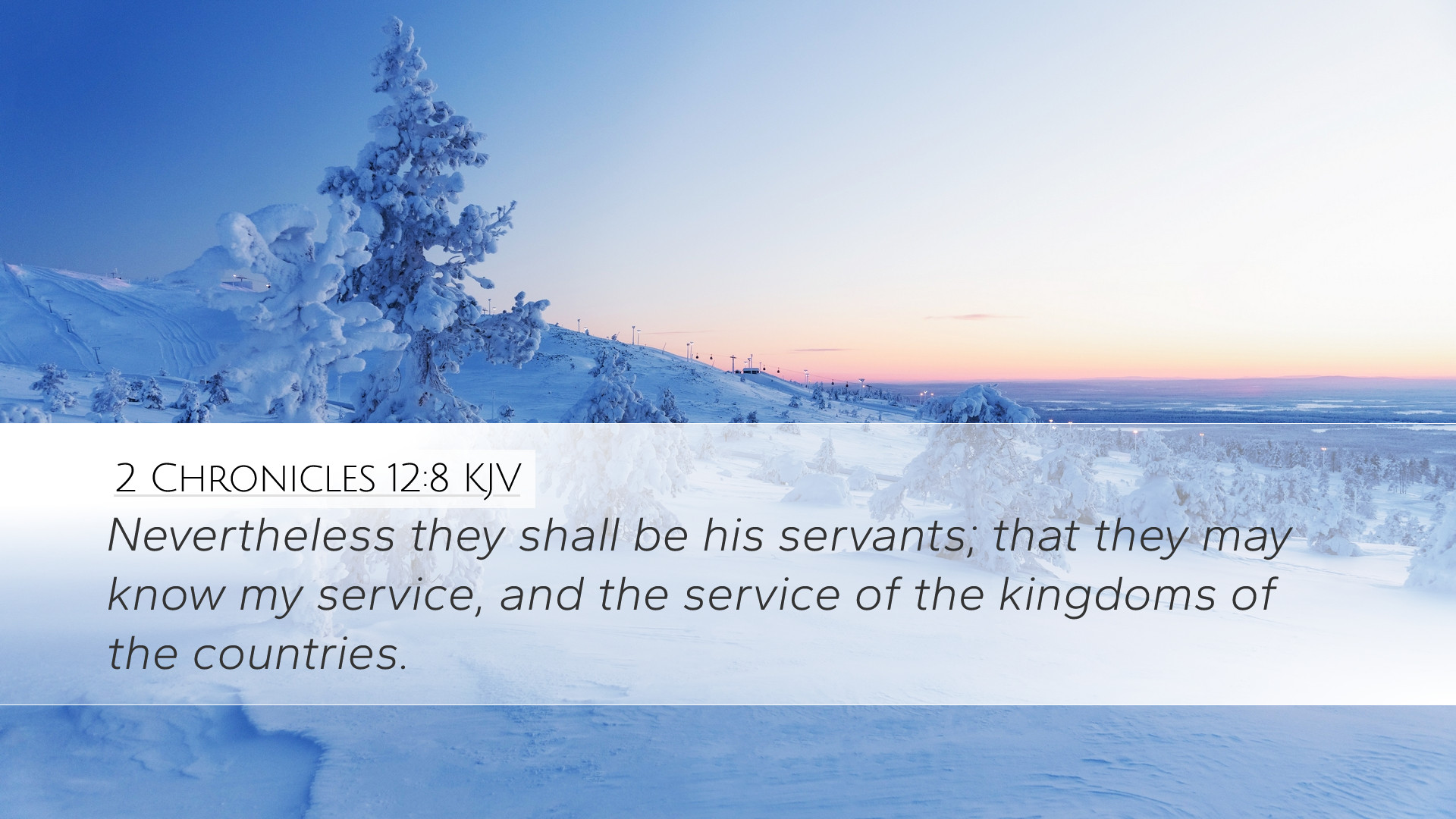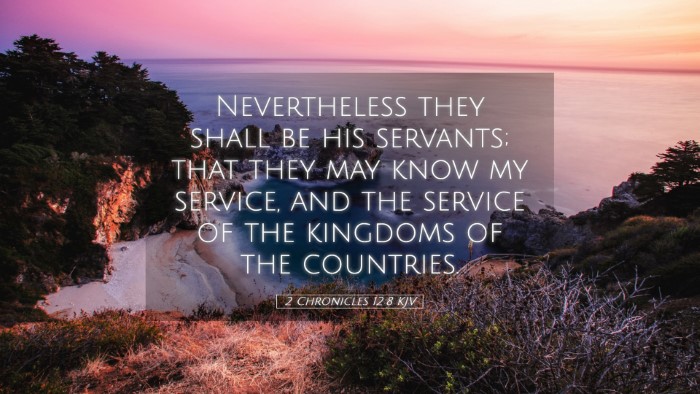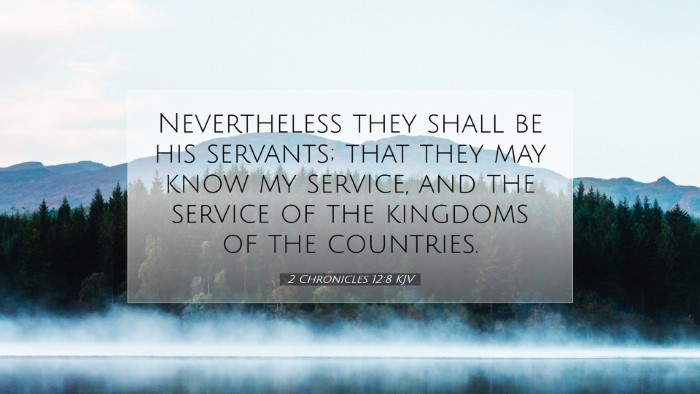Commentary on 2 Chronicles 12:8
Verse Reference: 2 Chronicles 12:8
"But they shall be servants to him, that they may know my service and the service of the kingdoms of the countries."
Introduction
The narrative surrounding 2 Chronicles 12:8 provides significant insight into the themes of servitude and learning through experience. This verse falls within the context of King Rehoboam's reign, highlighting the consequences of his choices and the admonitions from God regarding the fate of the people of Judah.
Contextual Background
Rehoboam, the son of Solomon, ascended to the throne of the United Kingdom of Israel after Solomon's death. His initial reign brought about discontent among the people due to heavy taxation and labor conditions imposed by Solomon's administration. The request for lighter burdens led to the division of the kingdom. The northern tribes, feeling betrayed by Rehoboam, separated and formed their own kingdom under Jeroboam. This division not only marked a significant political shift but also had deep spiritual implications as the people turned away from the worship in Jerusalem.
Commentary Insights
Matthew Henry's Commentary
Matthew Henry discusses the broader implications of servitude in this passage. He posits that the lordship of God demands acknowledgment through service. Henry emphasizes that through servitude to God, the people would gain experiential knowledge not only of God’s governance but also the operational dynamics of worldly kingdoms. This awareness serves to sharpen their discernment and commitment to God’s authority.
Albert Barnes' Notes on the Whole Bible
Albert Barnes offers a meticulous exegesis of this verse, elucidating the socio-political context. He brings to light the fact that the subjugation of the people of Judah to foreign kings serves as a divine pedagogy. Barnes highlights that suffering and servitude often lead to a greater understanding of righteousness and divine justice. The concept of “knowing my service” implies a relational dynamic; it suggests that understanding God’s service is foundational to recognizing God’s sovereignty over both Israel and the ascendant nations.
Adam Clarke's Commentary
Adam Clarke provides a comprehensive analysis that taps into the theological ramifications of servitude. He argues that the Israelites' experience of servitude under other kingdoms was intended to enlighten them regarding their own covenantal relationship with God. Clarke notes that through servitude, they would witness the repercussions of forsaking God, which serves as both a warning and a teaching moment for future generations. Furthermore, he emphasizes that the acknowledgment of “my service” indicates an active, ongoing relationship with God, contrasting it with the typically harsh realities of servitude under mortal rulers.
Theological Themes
Servitude and Divine Authority
This verse encapsulates a profound truth about the nature of service in relation to divine authority. The obligation of the Israelites, now subjected to servitude, acts as a reminder of their spiritual responsibilities. The call to 'know my service' serves as a vital invitation for them to recognize the difference between divine and earthly governance.
Experiential Knowledge of God
The experiential knowledge that comes through the acts of servitude emphasizes the educational purpose of suffering. As noted in the commentaries, it is through adversity that the people can come to understand the nature of God’s promises and faithfulness. This experiential approach is central to the lives of believers throughout scripture.
Judgment and Mercy
The dual themes of judgment and mercy are intricately woven into this narrative. While servitude is a form of divine judgment for the people's unfaithfulness, it simultaneously acts as a means of cultivating a deeper relationship and dependence on God. The theological tension between divine discipline and mercy invites deeper reflection on God’s character.
Application for Today
For pastors, students, theologians, and scholars, the implications found in 2 Chronicles 12:8 extend beyond mere historical observation; they present profound questions about leadership, fidelity, and the nature of God’s righteous governance. The call to understand service, both divine and human, reflects a necessary component of spiritual formation.
-
Leadership Dynamics: How do modern leaders reflect or distort God's service within their communities?
-
Spiritual Education: Are we actively learning from the experiences of servitude and oppression evident in our lives?
-
Faithfulness in Adversity: How can one hold steadfast faith in times of personal or communal hardship?
Conclusion
In conclusion, 2 Chronicles 12:8 serves as a critical examination of the nature of servanthood and the character of God. The insights drawn from the public domain commentaries contribute to a richer understanding of this passage, calling individuals to reflect on their relationship with God and the lessons learned through different forms of service. Through careful contemplation, one can appreciate the intricate balance between divine justice and mercy as it plays out in the lives of believers.


